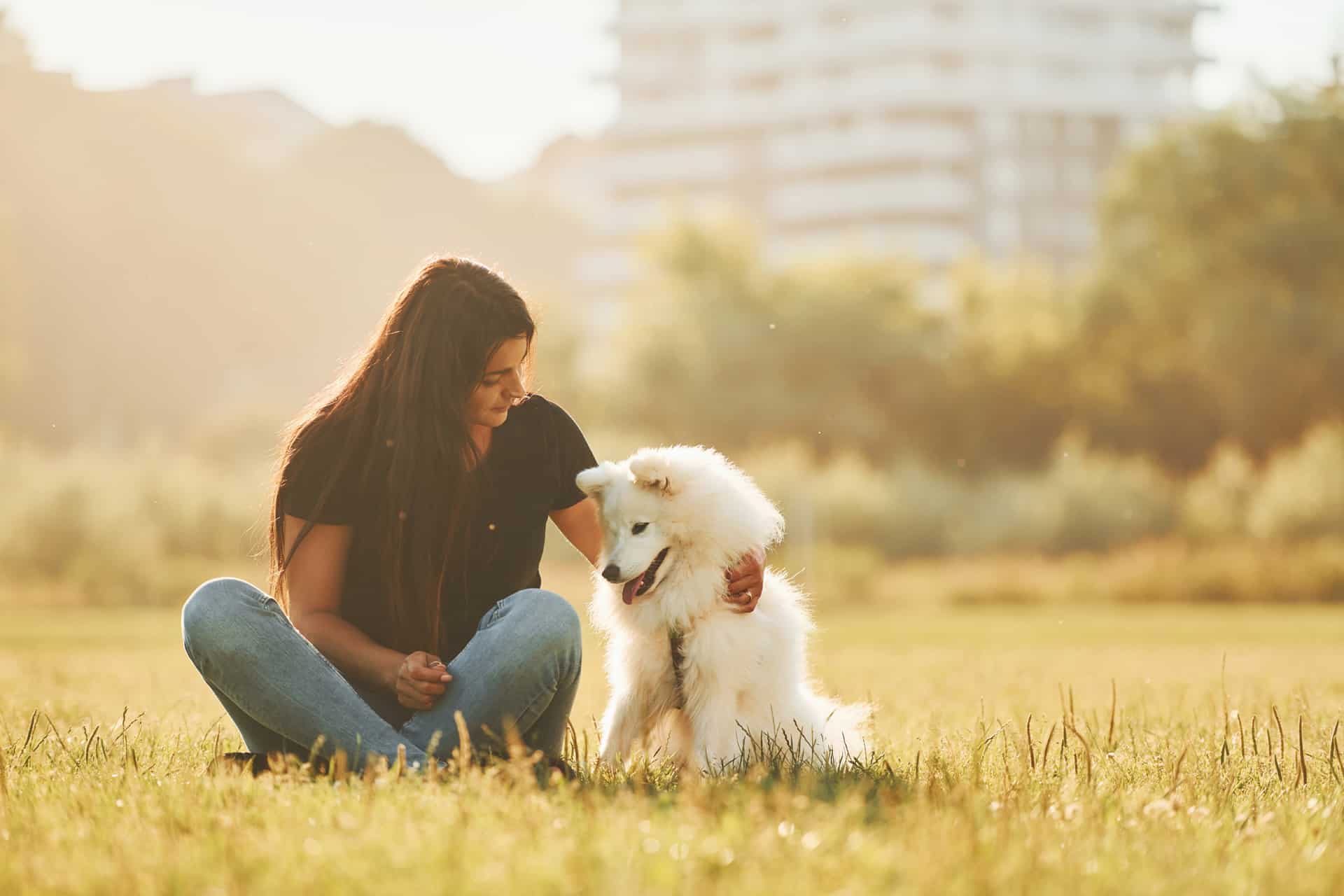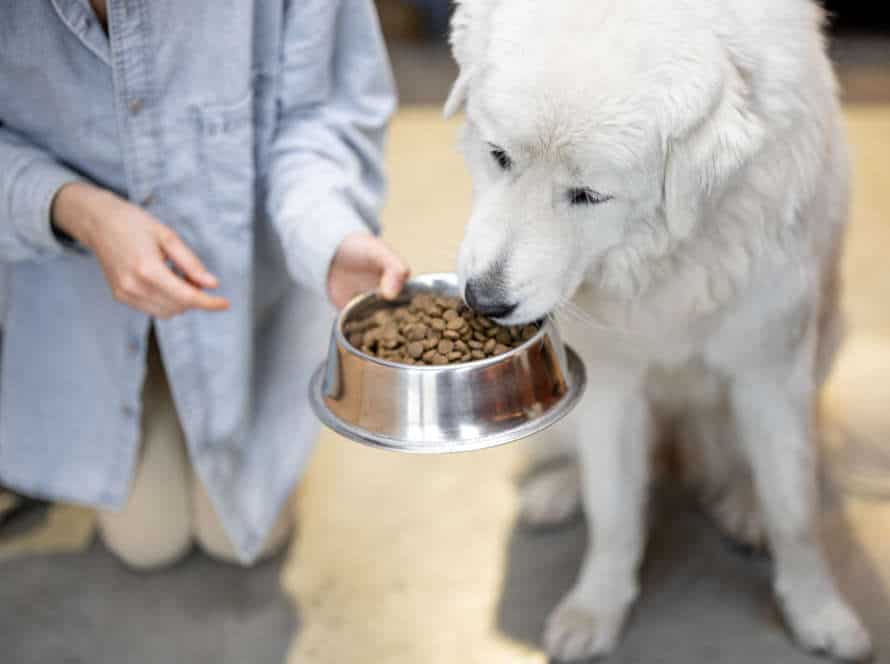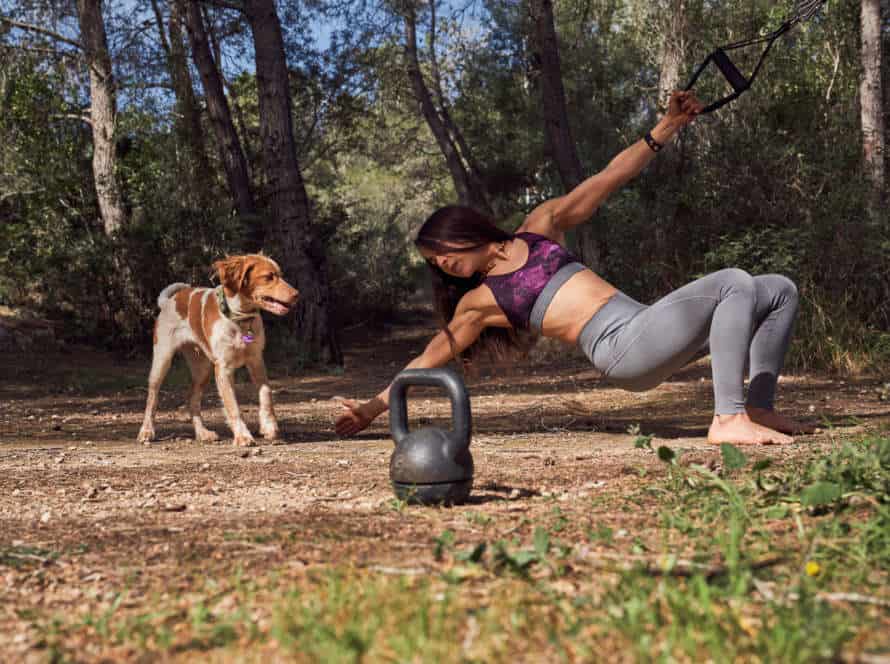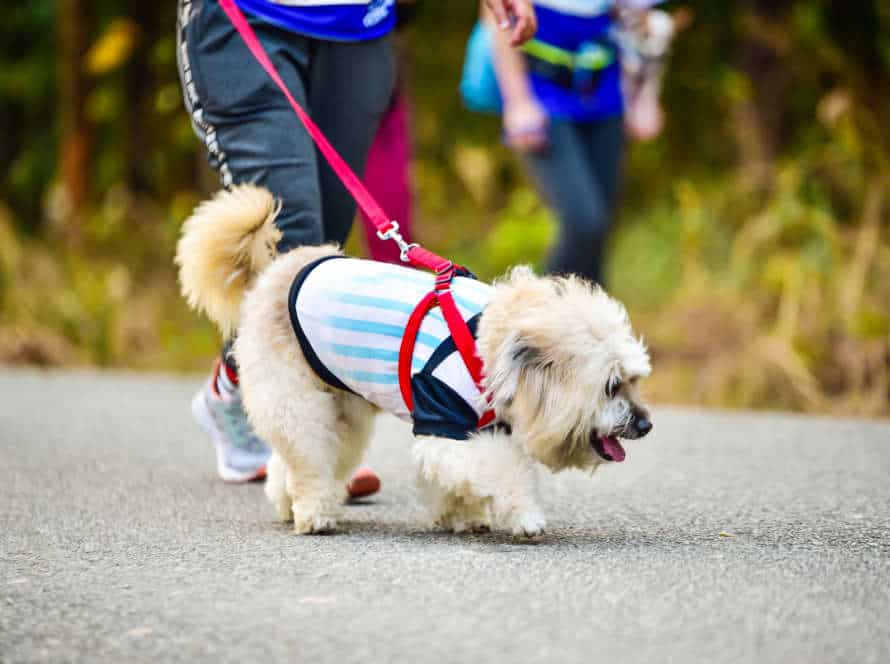Trust and Your Senior Dog: Strengthening Your Lifelong Relationship
Why Positive Reinforcement is Important for Senior Dogs
As your pup ages, gaining and keeping trust is crucial for a great relationship. Positive reinforcement works to strengthen the bond between you and your older dog. This type of training rewards good behavior with treats, praise, and affection, not punishment. Your pup will learn to have faith in and respect you. You’ll have a special connection with your furry friend.
Clicker, target, and trick trainings are a few simple positive reinforcement methods. With patience and consistency, you can create a trusting and loving bond with your senior dog that lasts forever.
Pro tip: Remember to use positive reinforcement techniques that fit your dog’s personality and learning style. Also, be consistent and patient with your training.
Understanding Trust in a Senior Dog
A senior pup’s behavior and attitude may shift as they age. Building trust between you and your aging pup is key for a lifetime of friendship and care. It is especially important to form and keep that trust over their senior years.
The Importance of Trust in the Human-Canine Relationship
Trust is the foundation of the human-canine connection, especially for aged pooches. As your pup gets older, their physical and mental condition might change. It’s key to construct and maintain trust to keep your bond strong.
Here are some hints to understand why trust is so important in the relationship between senior dogs and humans:
- Age-related changes: Older doggos can lose hearing and vision, suffer from arthritis and experience other health issues that change their behavior. Believe in your pup and accept those changes.
- Building trust: Spend time with your elderly pup and interact positively to foster trust. Show up, make yourself understood and give them gentle touches to demonstrate they can trust you.
- Mutual respect: Trust is a two-way street. Respect your senior pup’s needs, limits, and likes to build a reliable bond.
- Pro tip: Creating trust takes time and effort. Be patient, consistent and communicate clearly. Prioritize trust-building activities and show your old pal the love and respect they deserve.
Factors Affecting Trust in a Senior Dog
Trusting a senior pup is impacted by many aspects. Such as physical & mental health, environment, breed, and prior experiences.
- Physical & Mental Health: Senior dogs may suffer health issues that can impact their agility, vision, and hearing. This can make them more anxious and less trusting. Ensuring their physical & mental wellbeing is essential to help strengthen their trust in you.
- Environment: Changes in the surroundings can cause stress and anxiety in senior dogs, resulting in trust issues. Providing a secure & consistent atmosphere can help your senior pup feel calm and trust you.
- Breed: Some dog breeds are naturally more distant, while others are more outgoing & loving. Knowing your pup’s breed characteristics & personality traits can aid in establishing trust.
- Previous Experiences: Traumatic pasts like abuse or neglect can affect senior dogs’ powers of trusting humans. Patience, tenderness, and consistency are key when attempting to build trust with these dogs.
Strengthening trust with your elderly pup demands effort, patience, and understanding. With the correct attitude & approach, you can maintain a strong and lifelong relationship with your furry pal.
How Trust Changes as Your Dog Ages
As your pup ages, their habits, wellness, and daily routines shift. Trust with their owners also alters over time. Here’s how trust changes with age:
- Routine stability: Senior pups trust their owners to keep the same daily schedule. This means regular meals, meds, exercise, and rest.
- Medical care: Older dogs may need regular vet visits, meds, and attention. They trust their owners to give them what they need to manage health issues.
- Communication: Age can cause hearing, vision, and cognitive issues for pups. They count on their owners to understand them and communicate properly.
- Comfort and safety: Senior dogs become more susceptible to accidents, injuries, and climate conditions. They depend on their owners to provide a safe, cozy, and caring environment.
By understanding and supporting your senior pup, the trust between you two can grow.
Building Trust in a Senior Dog
Having trust with your aged pup is vital for being a great owner. Older dogs often battle with adapting to change or get frightened in unfamiliar places. It’s important to have a powerful trust bond with your senior dog. Achieve this by providing them understanding and patience.
Let’s explore the different techniques to reinforce the bond with your senior dog and develop a trust that will last forever:
Consistency in Daily Routines
Creating daily routines is key for gaining senior dogs’ trust and having a strong bond with them. Here are some tips:
Feeding: Feed your senior pup the same food, at the same time, in the same place daily. This way, your dog will know what to expect.
Exercise: Make an exercise routine that’s good for their age and physical abilities. It helps keep them healthy and gets them used to a routine.
Grooming: Regular grooming keeps them clean and healthy. Have a routine for brushing, bathing, and nail trimming.
Training: Senior dogs can still learn! Spend some time each day teaching them something new, even if it’s just a few minutes.
Pro tip: Be patient and consistent. Senior dogs may not learn as quickly, but with patience and consistency they can live a long and happy life with you.
Clear Communication and Positive Reinforcement
Communication that is clear and reinforcement that is positive are essential for creating trust with your senior dog. This helps to form a relationship with your lifelong furry friend which is more powerful and more pleasing.
Begin by understanding your senior dog’s body language, sounds, and habits. Notice their feelings, energy level, and physical pain. Use positive reinforcement to encourage good behavior and to stop bad actions. For example, if your senior dog obeys a command, reward them with a treat, love, or compliment.
Reinforcement such as caressing, verbal recognition, or treats to show your dog that they have done something well will aid the connection you have and help your senior dog to believe in you. Eventually, your senior dog will know when they are doing something good and when they need to change their behavior to make you happy.
By sending out clear messages and rewarding good behavior, you build trust with your senior dog. This generates a lifelong bond, respect, and devotion.
Exercise and Mental Stimulation
Exercise and mental stimulation are essential for building trust with your senior dog. This strengthens the lifelong bond between you.
Regular exercise helps your senior dog stay physically fit, maintain a healthy weight, and avoid age-related health problems.
Mental stimulation activities such as obedience training, puzzle games, and interactive toys, can keep your senior dog’s mind active and prevent cognitive decline.
When your senior dog is both physically and mentally healthy, they will trust you and feel secure. This creates a positive cycle of trust, making your relationship even stronger.
Pro tip: Talk to your vet before you start any kind of exercise or mental stimulation activities with your senior dog. Ensure it is suitable for their age and health.
Maintaining Trust in a Senior Dog
Trust is key for a successful dog-human relationship. With age, it may be tougher to keep up this trust. Especially for senior dogs, trust is essential for their contentment and safety.
Let’s see how to keep up trust with a senior pup and further the bond between you and your long-time companion!
Dealing with Health Issues and Changes
As your pup ages, it is typical for them to have health problems and changes in their behavior. This can be tough for pet owners. So, maintaining trust in your senior dog is super important for strengthening the relationship. Here are some tips to help:
- Have regular vet check-ups to find health issues early.
- Change their diet or routine if needed for their changing needs.
- Be patient and kind with your pup, showing understanding and compassion.
- Spend quality time, adjusting activities to their energy and movement.
These tips will help instill trust and reassurance in your senior dog. This will ensure a loving relationship lasts a lifetime.
Managing Behavioral Changes
Senior dogs may have behavioral changes as they age. It can be tricky for pet owners to keep a good bond with their furry friends. But, with patience and a few tips, owners can manage the changes and stay close to their senior dogs. Here are some tips:
- Understand changes are normal: With age, senses and thinking decline, resulting in changes. Knowing this can help owners be more understanding.
- Socialize more: Socializing helps reduce stress and build trust and friendship.
- Use positive reinforcement: Praise and rewards for good behavior help build trust, strengthen the bond, and encourage good behavior.
- Be consistent: Routine, boundaries, and a secure environment can help maintain trust and security in senior dogs.
- Seek veterinary help: Speak to a vet to address medical issues that could contribute to behavior changes.
By following these tips, owners can manage changes and sustain trust and love with their senior dogs. Pro tip: Patience, kindness, and understanding are key in keeping a strong relationship.
Staying Present and Attentive to Your Dog’s Needs
It’s important to stay present and attentive to your senior dog’s needs in order to build trust and a strong relationship. Here are some tips:
- Observe their body language and behaviors to spot any changes.
- Daily walks and playtime should be a priority for keeping them active and healthy.
- Introduce new experiences and environments slowly, as senior dogs can be more prone to stress.
- Mental stimulation through games, puzzles, and training is key.
- Show lots of love, and maintain a positive and nurturing relationship with them.
Remember, a trusting bond between you and your dog will only get stronger with time.
Repairing Broken Trust in a Senior Dog
When the bond between an owner and their senior dog is broken, it can be difficult to mend. Senior dogs can be more sensitive and have special needs not met by traditional methods. Yet, trust can be repaired through different techniques. Here are some tips for repairing trust with a senior dog:
Identifying the Cause of Broken Trust
Broken trust in senior dogs can be due to many reasons. It’s important to recognize what caused the broken trust, to mend and reinforce the trust bond with your elder furry friend.
The potential causes of broken trust in senior dogs are:
- Pain & Discomfort: If your elderly pup is in pain or discomfort, it can alter their behaviour & make them appear untrusting. Take your pooch to the vet to treat any underlying issues.
- Traumatic Experiences: If a past experience was traumatic, like abuse or being deserted, it can bring about fear & trust issues. Give your dog time, along with patience, to trust again.
- No Socialization: A senior dog that hasn’t been socialized enough may be scared of new places & people, leading to damaged trust. Socialize your pup gently & patiently.
- Neglect: If your senior dog has been neglected or overlooked, it can break their trust. Spend quality time with your dog & show them love to start rebuilding their trust.
Rebuilding on a Foundation of Safety and Security
Rebuilding trust and security is key when mending a broken relationship with your senior dog. To do so, form a base of safety and security. Here are some ways to restore trust and reinforce your bond with your senior pup:
- Establish a safe place: Give your dog an assigned zone where they feel safe. This can be a bed, crate, or a specific room in the house.
- Be steady: Put together a habit for feeding, walking, and spending time with your dog. This will help them feel secure in their everyday life.
- Utilize positive reinforcement training: Praise your dog for good behavior, and bypass punishment or scolding.
- Be tolerant: Creating trust takes time, especially with an elderly dog. Be patient, and don’t anticipate immediate results.
Pro Tip: Recall that each dog is unique, so it’s significant to personalize your approach to your senior dog’s individual needs and character.
Seeking Professional Help if Needed.
Fixing a senior dog’s broken trust can be hard. It’s vital to get expert help if needed.
Some signs of trust issues in dogs:
- Growling or snapping when touched or approached.
- Avoidance or hiding when you’re near.
- Refusal to come or do familiar commands.
- Changes in eating or sleeping.
Experts can diagnose the issue and create a personalized plan. They can also recommend techniques to strengthen the bond with your senior dog. Positive reinforcement, reward-based training, and counter-conditioning can help.
Seek professional help to keep your relationship with your senior dog strong and healthy.
Tip: Pick a dog trainer or vet who uses positive reinforcement and reward-based techniques.
Frequently Asked Questions
Q: What can I do to strengthen my bond with my senior dog?
A: Spend quality time with your dog, give them proper exercise and nutrition, communicate with them using positive reinforcement, and show them love and affection regularly.
Q: How do I know if my senior dog trusts me?
A: Your dog trusts you if they come to you when they are scared, rely on you for protection, and show signs of happiness and contentment when they are around you.
Q: How can I tell if my senior dog is feeling anxious or nervous?
A: Signs of anxiety in dogs include panting, pacing, avoidance behavior, trembling, and excessive barking or whining.
Q: Why is trust important for a lifelong relationship with my senior dog?
A: Trust is essential for a healthy relationship with your senior dog because it provides a foundation of respect, communication, and understanding between you and your dog, which is crucial for their physical and emotional wellbeing.
Q: What should I do if my senior dog has trust issues?
A: Be patient, give them space when they need it, seek professional help (if necessary), and work on building trust slowly using positive reinforcement techniques.
Q: How can I maintain trust with my senior dog as they age and their needs change?
A: Be adaptable, communicate regularly, listen to your dog’s cues, and make adjustments to their environment or routine as needed.







